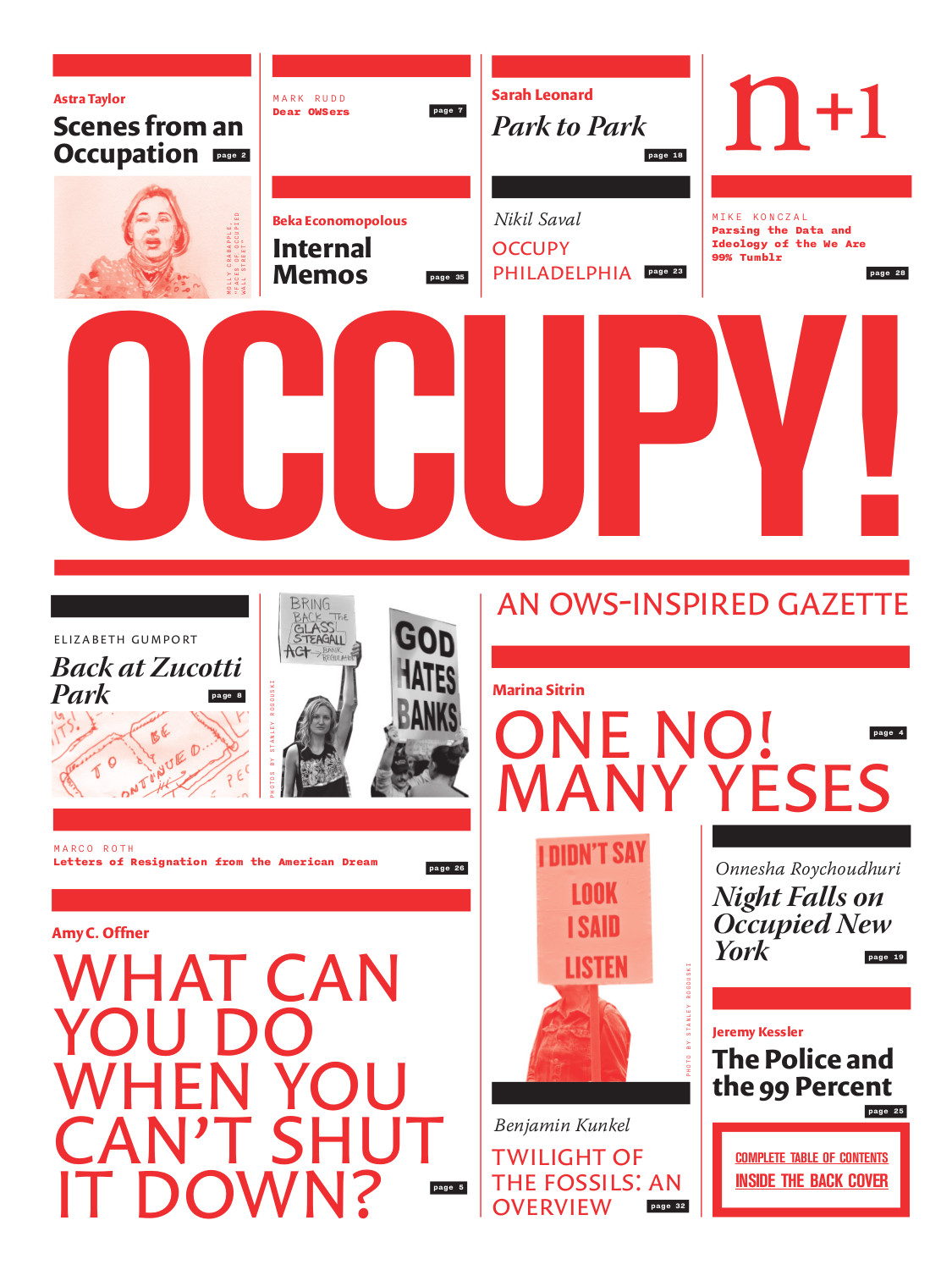RMF Report: Breaking Up? A Route Out of the Eurozone Crisis (2011)
Filed under report | Tags: · banking, debt, economy, eu, finance, financial crisis, germany, greece, money, neoliberalism, politics

“Debtor-led default and exit are fraught with risk, and have costs attached to them. But the alternative is economic and social decline within the EMU that could still end up in chaotic and even costlier exit. In contrast, if default and exit were planned and executed by a decisive government, they could put the country on the path to recovery. For that it would be necessary to adopt a broad economic and social programme including capital controls, redistribution, industrial policy, and thorough restructuring of the state. The aim would be to change the balance of power in favour of labour, simultaneously putting the country on the path of sustainable growth and high employment. Not least, national independence would also be protected.” (from Executive summary)
Authors: C. Lapavitsas, A. Kaltenbrunner, D. Lindo, J. Meadway, J. Michell, J.P. Painceira, E. Pires, J. Powell, A. Stenfors, N. Teles, L. Vatikiotis
Published by Research on Money and Finance, November 2011
RMF Occassional Report 3
92 pages
Media Coverage of the Report: The Miami Herald (by Joanna Kakissis, 17 November 2011), Prin (in Greek, by Petros Kosmas, 13 November 2011), El Pais (in Spanish, by Amanda Mars, 13 November 2011), Guardian (by Heather Stewart, 13 November 2011), Eleftherotypia (in Greek, by Leonidas Vatikiotis, 12 November, 2011), CNN (by Costas Lapavitsas, 10 November 2011).
PDF
View online (Issuu.com)
David Graeber: Revolutions in Reverse: Essays on Politics, Violence, Art and Imagination (2011)
Filed under book | Tags: · altruism, anarchism, anthropology, art, autonomy, capitalism, communism, debt, politics, violence

Capitalism as we know it appears to be coming apart. But as financial institutions stagger and crumble, there is no obvious alternative. There is good reason to believe that, in a generation or so, capitalism will no longer exist: for the simple reason that it’s impossible to maintain an engine of perpetual growth forever on a finite planet. Yet faced with this prospect, the knee-jerk reaction is often to cling to what exists because they simply can’t imagine an alternative that wouldn’t be even more oppressive and destructive. The political imagination seems to have reached an impasse. Or has it?
In this collection of essays David Graeber explores a wide-ranging set of topics including political strategy, global trade, debt, imagination, violence, aesthetics, alienation, and creativity. Written in the wake of the anti-globalization movement and the rise of the war on terror, these essays survey the political landscape for signs of hope in unexpected places.
At a moment when the old assumption about politics and power have been irrefutably broken the only real choice is to begin again: to create a new language, a new common sense, about what people basically are and what it is reasonable for them to expect from the world, and from each other. In this volume Graeber draws from the realms of politics, art, and the imagination to start this conversation and to suggest that that the task might not be nearly so daunting as we’d be given to imagine.
Publisher Minor Compositions, an imprint of Autonomedia, November 2011
ISBN 1570272433, 978-1-57027-243-1
120 pages
PDF (PDF; updated on 2012-8-26)
PDF (EPUB; added on 2012-8-26)
PDF (MOBI; added on 2012-8-26)
View online (Scribd.com)
Occupy! An OWS-Inspired Gazette, 1 (2011)
Filed under magazine | Tags: · activism, debt, economy, money, occupy movement, politics, protest

“With the help of Astra Taylor (Examined Life; Zizek!) and Sarah Leonard of Dissent and the New Inquiry, we’ve put together a history, both personal and documentary, and the beginning of an analysis of the first month of the occupation. Articles deal with the problem of the police; the history of the “horizontalist” management structure at OWS; how to keep a live-in going when what you’ve tried to shut down refuses to shut down (like Harvard, or Wall Street); on whether the Fed should be abolished; on where that Citibank arrest video came from; on occupations in Oakland, Philadelphia, Atlanta; on what happens next; and more.
It’s an attempt to begin to think through what is happening, written by people both on the ground and across the river. We hope you’ll read it and discuss it with us. There’s a lot more thinking and doing to do.” (authors)
Editors Astra Taylor, Eli Schmitt, Nikil Saval, Kathleen Ross, Sarah Leonard, Mark Greif, Christopher Glazek, Keith Gessen, Carla Blumenkranz
Publisher n+1, New York, October 2011
40 pages
Project’s Kickstarter page
Facebook page
Publisher
PDF (updated on 2017-12-2)
See also issues 2 and 3.
Comment (0)
